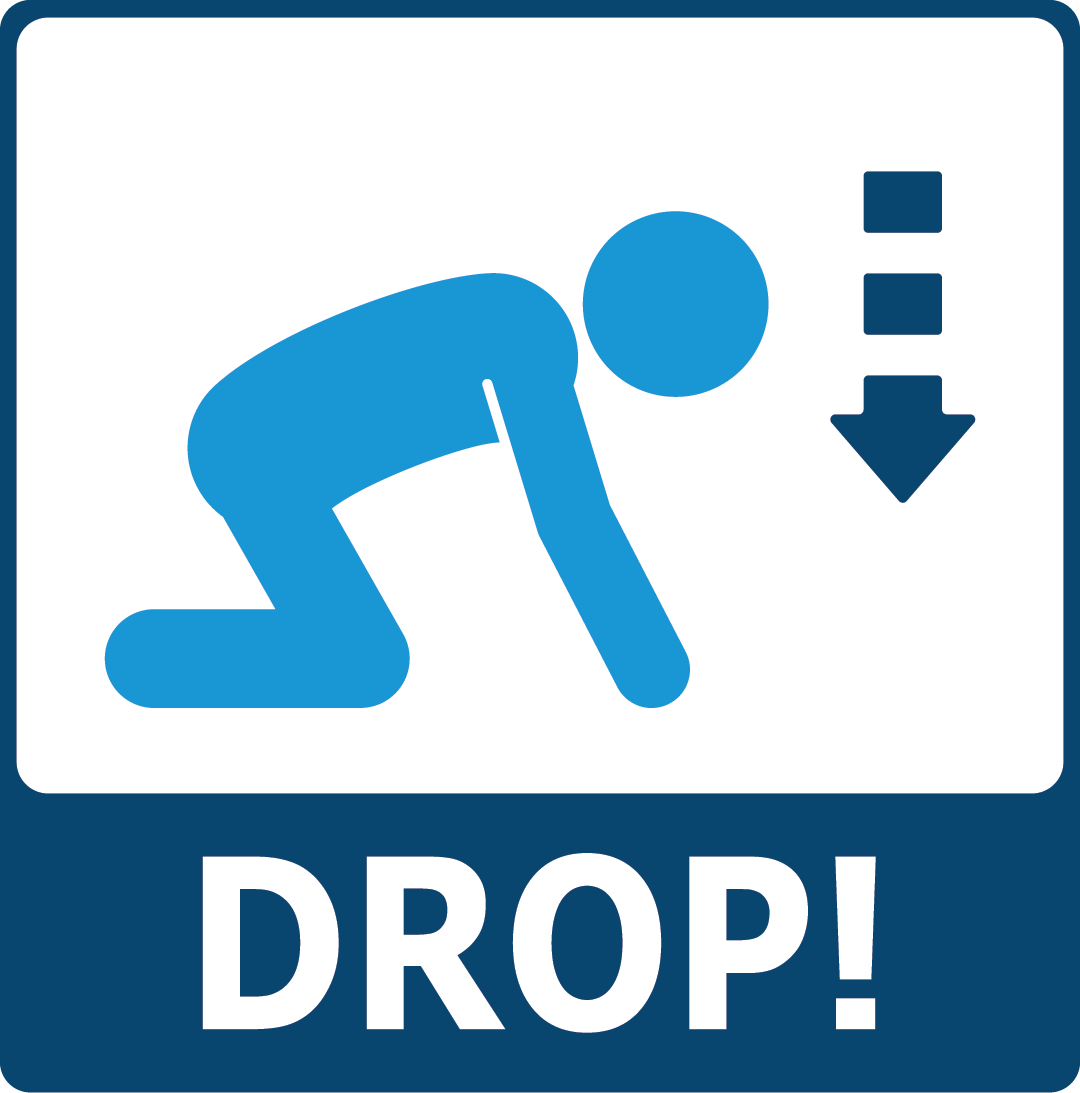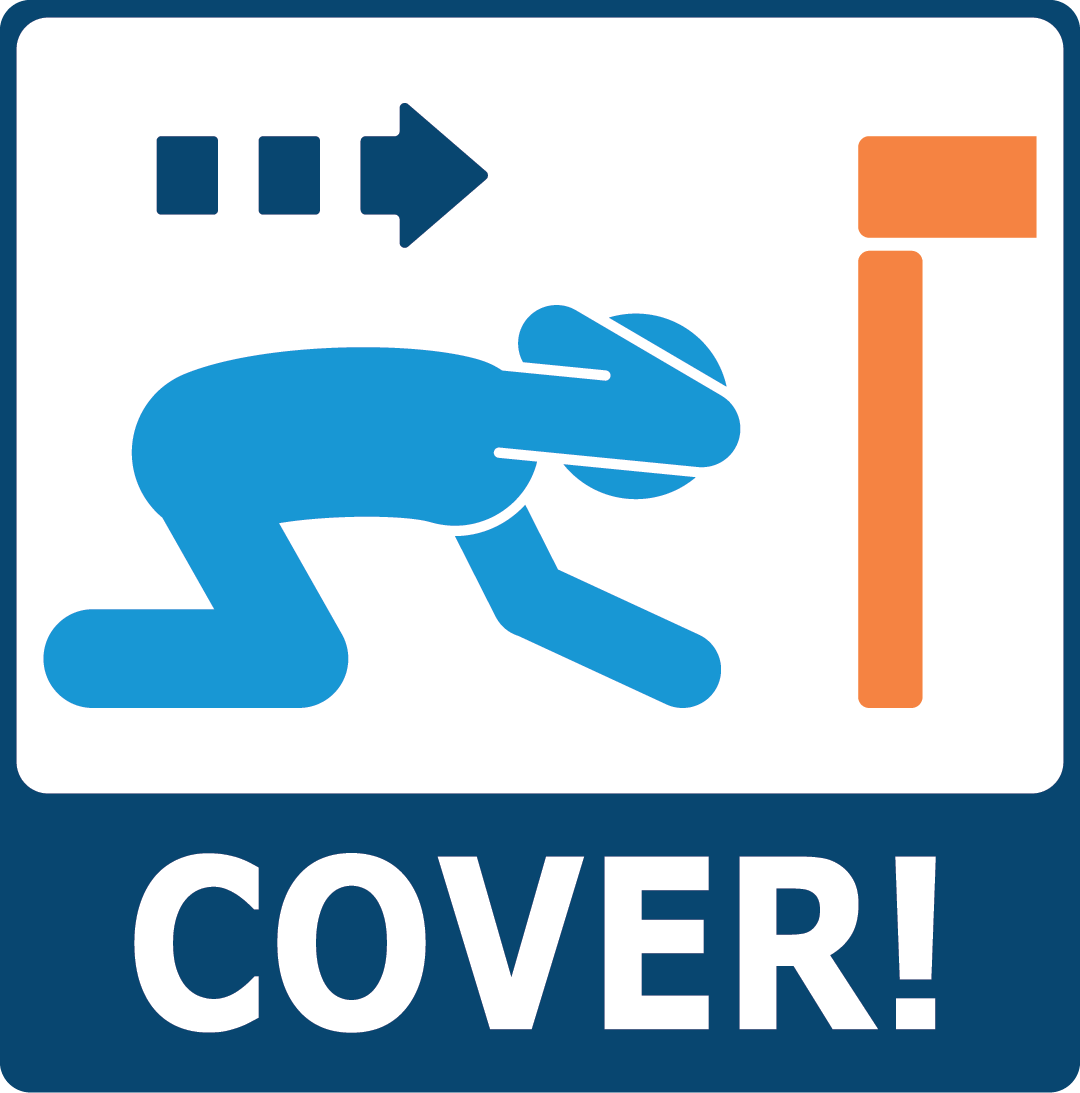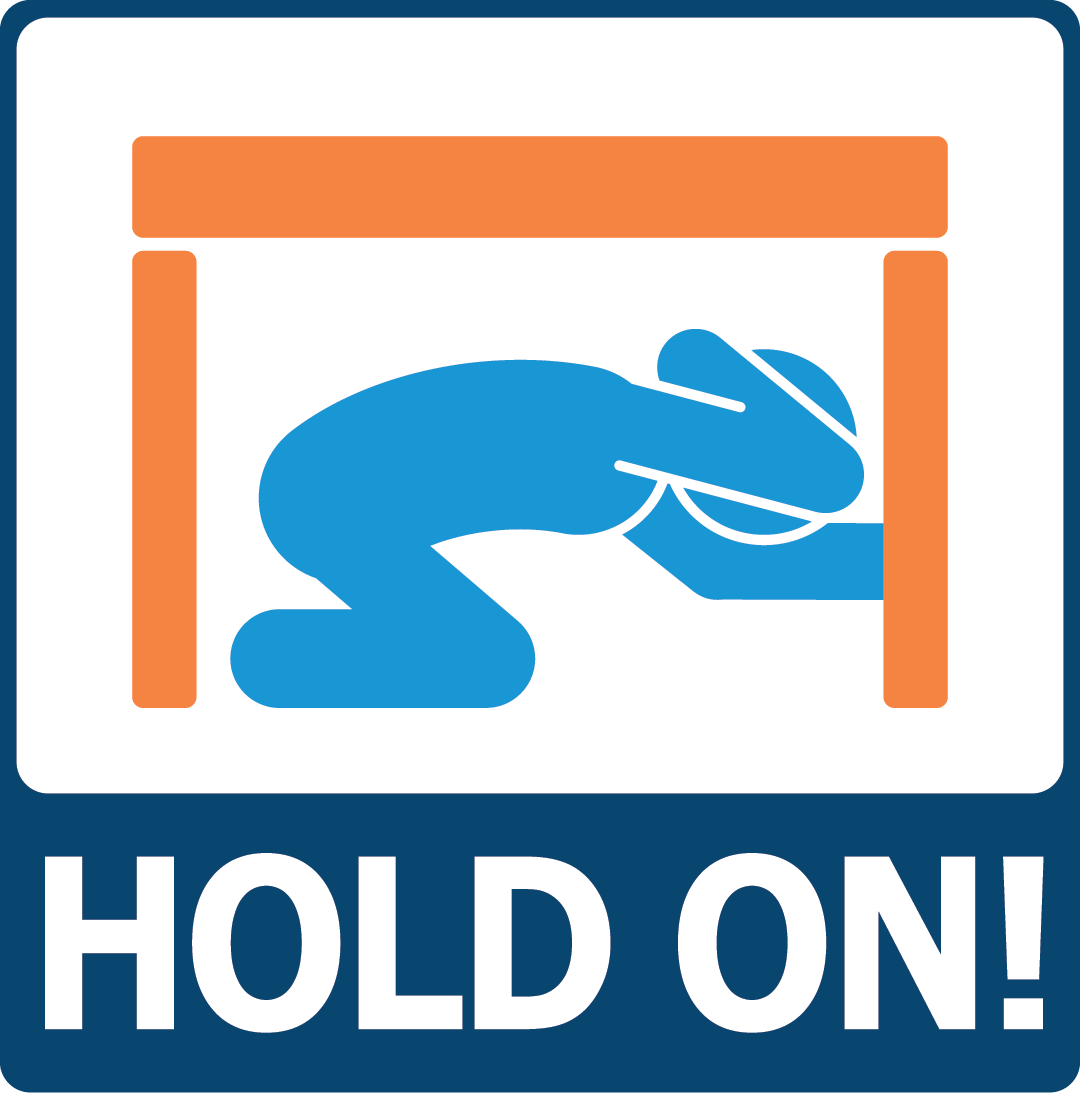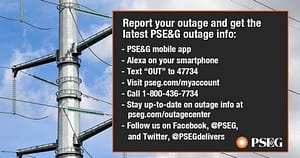
Here are a few of the different types of Severe Weather emergency situations you could encounter along with general precautions and safety measures you should follow.
THUNDERSTORMS
Thunderstorms produce many dangerous and severe forms of weather. Lightning, high winds, heavy rain and hail can accompany thunderstorms.
Severe Thunderstorm Watch means conditions are favorable for severe weather. Continue normal activity, but monitor weather conditions closely.
Severe Thunderstorm Warning means to seek shelter immediately and monitor conditions on radio or television.
What To Do
- If you are outside, get into a building or a car
- If you are swimming or boating, get out of the water immediately and onto land as soon as possible.
- If you are in an open area, head for shelter. If you are not able to, head for low ground such as a valley or ravine, or crouch down.
TORNADOES
Tornadoes are violent storms with spiraling high-speed winds. Tornadoes are usually accompanied by hail, severe thunderstorms and wind. The noise of a tornado has been described as a roaring sound — like a train far away.
A Tornado Watch means there is a possibility of one or more tornadoes in your area. Continue normal activity but monitor weather conditions closely.
A Tornado Warning means a tornado has been sighted and may be approaching — seek shelter immediately.
When a tornado threatens, immediate action can save your life!
- Stay away from windows, doors and outside walls. Protect your head.
- In homes and small buildings, go to the basement or to an interior part of the lowest level — take shelter in closets, bathrooms or interior halls away from windows. Get under something sturdy or lie in the bathtub and cover yourself with a blanket or a mattress.
- In schools, shopping centers and malls, go to per-designated shelter areas. Interior hallways on the lowest levels are best. Stay away from exterior glass doors and windows.
BLIZZARDS
Blizzards, heavy snows, ice storms, freezing rain, or sleet can be serious hazards. Please follow local weather alerts when a Blizzard is forecasted.
Winter Storm Watch means severe winter weather conditions may affect your area.
Winter Storm Warning means that winter storm weather conditions are imminent.
What To Do
- Check battery-powered equipment, heating, fuel, food stock, and other vital supplies.
- Be Winter Ready. Have a full tank of gasoline and carry a winter safety kit.
FLASH FLOODS
Flash floods can come with little or no warning. Storm drains, small creeks and streams are unable to accommodate so much water and may flood. The force of one foot of swiftly moving water can knock people off their feet. If you encounter a flooded roadway, do not walk through the water.
A Flash Flood Watch means that heavy rains may cause flash flooding in certain areas.
A Flash Flood Warning means that flash flooding is occurring or imminent for certain streams or in designated areas.
Observe these flash flood safety rules — they could save your life!
- Keep alert for signs of rain (thunder and lightning), both where you are and upstream.
- Be especially cautious at night. It’s harder to recognize the danger.
- Watch out for rising water levels and do not try to drive through water that is over your tire.
- Abandon your vehicle if water begins to rise over the road and head for higher ground immediately.
HURRICANES
Because hurricane preparedness activities become difficult once winds reach tropical storm force (sustained winds of 39 to 73 mph), the hurricane warning is issued 36 hours in advance of the anticipated onset of tropical-storm-force winds to allow for important preparation.
During a hurricane warning, complete storm preparations and immediately leave the threatened area if directed by local officials.
A Hurricane Watch means that hurricane conditions (sustained winds of 74 mph or higher) are possible within the specified area. A hurricane watch is issued 48 hours in advance of the anticipated onset of tropical-storm-force winds in an area.
A Hurricane Warning indicates that hurricane conditions (sustained winds of 74 mph or higher) are expected somewhere within the specified area.
Observe these Hurricane tips;
- Keep alert for signs of rain (thunder and lightning), both where you are and upstream.
-
Use hurricane shutters or board up windows and doors with 5/8-inch plywood
-
Bring outside items in if they could be picked up by the wind.
-
Turn the refrigerator to its coldest setting in case power goes off. Use a cooler to keep from opening the doors on the freezer or refrigerator.
-
Fill a bathtub with water.
-
Get a full tank of gas in one car.
-
Go over the evacuation plan with the family, and learn alternate routes to safety.
-
Unplug small appliances and electronics before you leave
EARTHQUAKE
When an earthquake strikes your area, for a minute or two the “solid” earth moves like the deck of a ship. What you do during and immediately after the tremor could help reduce damage and loss of life.
During the Shaking
- If outside, stay outside — if indoors, stay indoors. Most injuries during an earthquake occur when people attempt to enter or exit buildings.
- Stay indoors and take cover under a sturdy object or in the hallway. Stay away from glass.
- If the earthquake catches you outside, move away from buildings/houses.



After the Shaking
- Do not use candles or flames. Douse all fires.
- If you see electrical damage, switch off electrical power at the main panel.
- If you smell gas, open windows and shut off the main valve. Then leave the building and report gas leakage to the authorities.
- Turn on your radio to get the latest emergency bulletins.
- Use the phone only to report a life-threatening emergency.
- Do not go sightseeing. Aftershocks may occur for several days.

The Township of Washington Police Department will provide or arrange for the transportation of emergency medical personnel to area hospitals during severe weather conditions. Those residents requiring treatment for life threatening illness will also be transported when requested. Arrangements will be made by calling the Police Desk at 201-664-1140. If possible, please call two hours prior to the needed transport.
Outages
Please click here to view a live power outage map. Please refer to this map in times of severe weather.
To report power outages, please see the information below from PSE&G.


